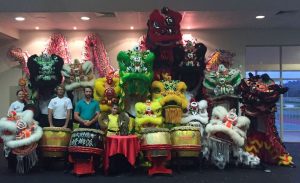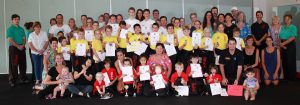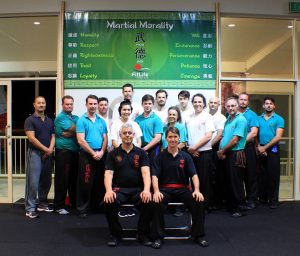Kung Fu Community
This year we smashed our Chinese New Year records with a total of 52 lion performances and 10 martial demonstrations. Our previous record was 38 and 4. We did 44 of those performances and 9 of those demos in 13 days! The preparation, planning, and execution of all events was fantastic too.

And what I observed from our club community made me extremely proud as a Sifu. I realised we are developing something very special and a bit unique in this modern era of ‘more take and less give’. Our club community comes together for training some amazing arts that encourage self development on many levels. We enjoy each other’s company in and out of the confines of training. The respect, traditions, and camaraderie are also expressed outside of the club and its training times. We perform often together, supporting each other and the continued success of a full time club, and there seems to be a caring connection for each other that surpasses just having training partners. How could I not be happy with the family-like Kung Fu community you have helped create. And it got me thinking about the benefits of such connections and interactions on our health and wellbeing.

Simon Thakur is one of my past teachers in the Stretch Therapy and Monkey Gym training systems. You can check out his ideas and training here and here. This is something Simon wrote about the importance of having an interactive community, developing bonds and learning from each other.
I reckon we need more time in nature (yeah yeah I know it’s all “nature”, but you know what I mean I think), and probably more time in solitude in nature, but also definitely much much more time in “tribe”, “community”, and actual real connected “culture”.
The biggest take home message I got from the retreat with Jon Young last year was that (my paraphrasing, quite possibly not what he actually said) it is the job of a culture to value and nurture every member of the culture, to give them an important place in the community and to give their life a feeling of meaning through every stage of their growth from early childhood through adulthood and old age until the day they die, to teach them how to live (how to feed and look after themselves and their families), and to connect every individual and the entire community in personal, tribal and mythological relationships with all of the species and individual creatures and features of the ecology of their local bioregion, all in a way that allows them to live there for many generations into the (ideally) indefinite future.
Any culture which doesn’t do that is “broken”. People feeling disconnected from each other, from the land they live on and the other creatures in it, people feeling their lives have no meaning, people growing old and dying alone, etc are all signs of a broken culture in need of repair.
Jon Young himself described what a lot of us have grown up with and are currently living in as a “non-culture”, or even an “anti-culture” in that it very effectively does the exact opposite of what a culture is supposed to do.
So yeah we need more quiet time, for sure, but we also need more time with real community (again ideally but not necessarily in “nature”), with people of all ages across the generations who we know and trust, who we see regularly over our whole lives, and who we know will look after each other no matter what – my friend and rewilding mentor Lee Trew’s definition of “tribe”.
I think on many levels we are doing what Simon is describing. Building a community of diverse people of different ages from different backgrounds, with different knowledge and skills to share. We are forming relationships with people we can trust and count on, and we have the common ground of the Chinese cultural arts. These include Kung Fu, Tai Chi, Qigong, Lion and Dragon Dancing, and East Asian Medicine. We are putting effort into things that take a long time to develop, things of great quality. This gives them deep meaning to us and in return we have respect for them. This is quite unlike the I want it now, instant gratification of the current ‘anti-culture’.

So keep up the training but also the greater good of building our club community. I think it is the more valuable side of what we have together. When you feel like things are tough, or like quitting your training, don’t! Stay connected to and involved in our community. Speak to Sifu or Simo. They are always there for you, for advice, as a sounding board, to clarify your direction or sharpen the focus on your journey. But more importantly you have the wider club community for advice and support. Don’t look back in the years to come and regret the loss of health, martial and fitness abilities, friendships, and learning. I am looking forward to the decades ahead that we will spend together – training, performing, socialising, learning, developing into better people, and growing our community.



